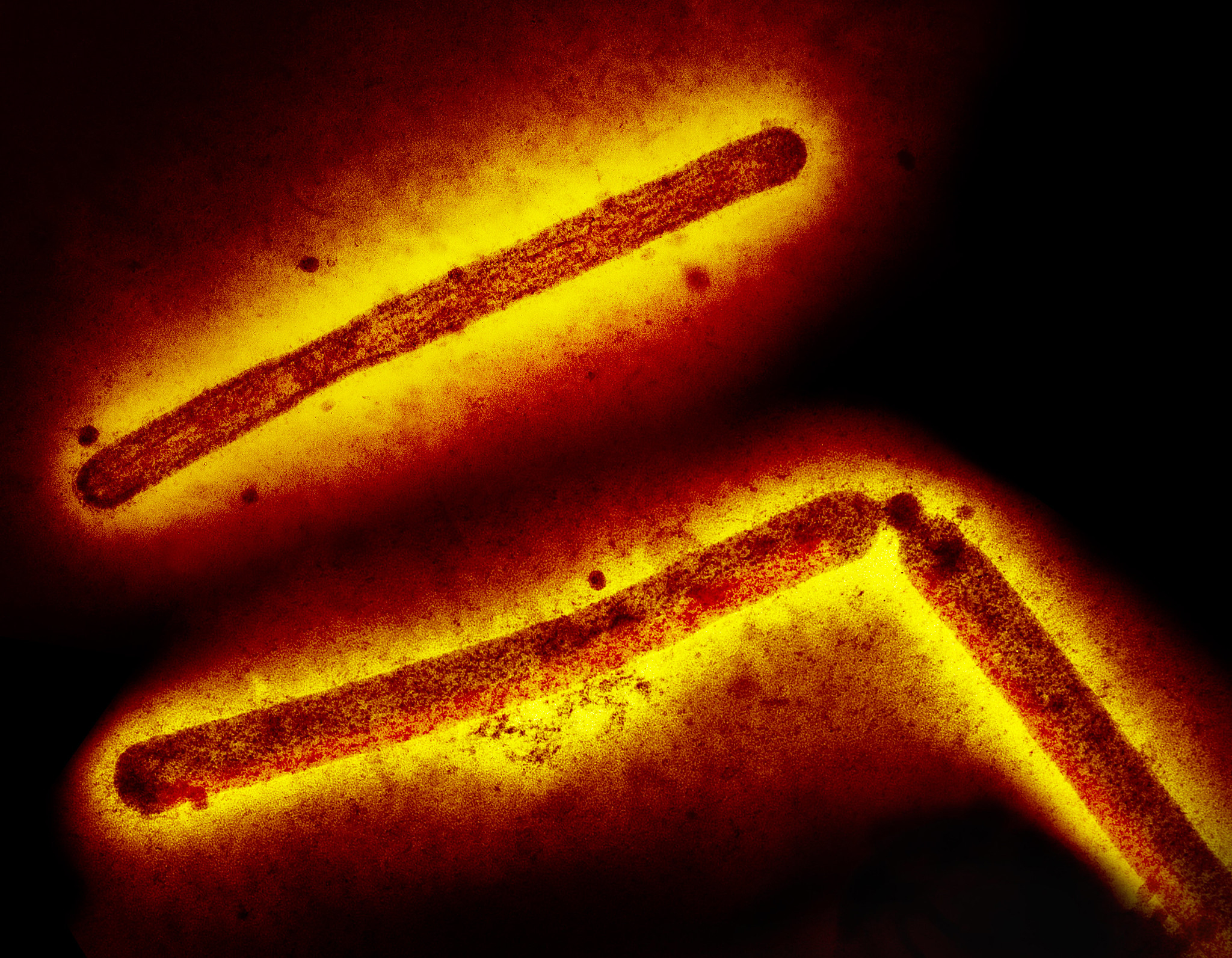
Single dose of broadly neutralizing antibody protects macaques from H5N1 influenza
February 11, 2025
Media Advisory
Tuesday February 11, 2025
NIH science lays the foundation for future human studies.

Three influenza A (H5N1/avian influenza) virus particles (rod-shaped). Note: The layout incorporates two CDC transmission electron micrographs that were inverted, repositioned, and colorized by NIAID. The scale has been adjusted. CDC and NIAID
What
Scientists at the National Institutes of Health (NIH) and colleagues report that a single dose of a broadly neutralizing antibody (bnAb) given before exposure to the virus protects macaques from severe H5N1 avian influenza disease. Highly pathogenic avian influenza (HPAI) H5N1 viruses have sporadically spread from birds to many other animals, including humans and dairy cows, in recent years. Although it has not yet acquired the ability to spread easily between people, the H5N1 virus has pandemic potential, spurring efforts to develop effective treatments and other countermeasures.
The researchers studied a monoclonal antibody called MEDI8852, which was discovered and developed by Medimmune, now part of AstraZeneca. MEDI8852 targets a part of a key influenza protein that is less prone to change than other parts of the virus and is therefore able to confer protection against a broad range of influenza viruses. In the new study, a group of macaques were injected with MEDI8852 and exposed to the HPAI H5N1 virus in an aerosol three days later. All of the pretreated animals survived and showed little or no signs of disease. In contrast, a group of control macaques developed severe or fatal disease shortly after exposure to the virus. It is worth noting that the scientists determined that MEDI8852 remained in the body for an extended period of time after injection. Scientists say protection against severe disease would extend for weeks beyond the antibody infusion, providing a realistic window of prevention in the face of an H5N1 flu epidemic.
The research was conducted by Masaru Kanekiyo, DVM, Ph.D., and colleagues at the NIH's National Institute of Allergy and Infectious Diseases (NIAID) Vaccine Research Center (VRC), along with researchers at the University of Pittsburgh. It was published in Science.
Article
Mr Kanekiyo et al. Pre-exposure antibody prophylaxis protects macaques against severe influenza. Science DOI: 10.1126/science.ado6481 (2025).
Who
Dr. Kanekiyo, VRC, NIAID, is available for comment.
This research was supported by the Vaccine Research Center, NIAID, NIH, and grants R01AI154894 and UC7AI180311 and contracts 75N93021C00014 and HHSN261201500003.
NIAID conducts and supports research—at NIH, throughout the United States, and around the world—to study the causes of infectious and immune-mediated diseases and to develop better ways to prevent, diagnose, and treat these diseases. NIAID news releases, fact sheets, and other materials are available at NIAID website.
About the National Institutes of Health (NIH): NIH, the nation's medical research agency, comprises 27 institutes and centers and is a component of the U.S. Department of Health and Human Services. NIH is the primary federal agency that conducts and supports basic, clinical, and translational medical research. It studies the causes, treatments, and cures for common and rare diseases. For more information about NIH and its programs, visit www.nih.gov.
NIH…Transforming Discovery into Health®
###